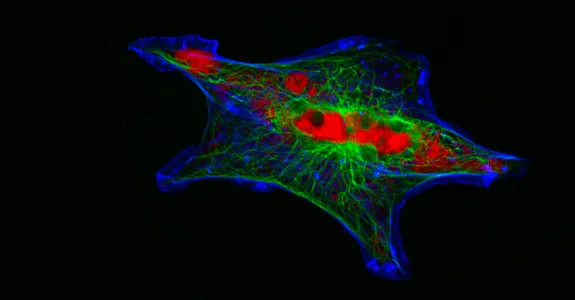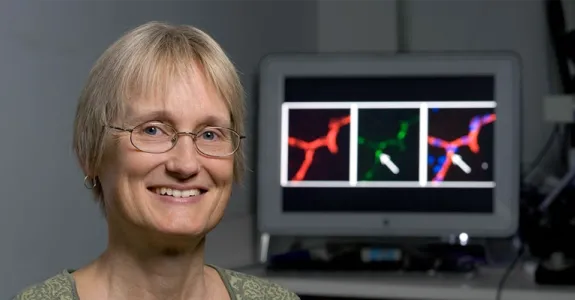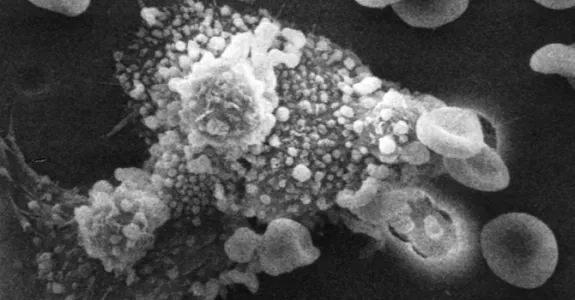
Ravi Majeti MD, PhD is Professor of Medicine, Chief of the Division of Hematology, and Member of the Institute for Stem Cell Biology and Regenerative Medicine at the Stanford University School of Medicine. He was an undergraduate at Harvard, earned his MD and PhD from UCSF, and trained in Internal Medicine at Brigham and Women’s Hospital in Boston. Dr. Majeti completed his Hematology Fellowship at Stanford, and is a board-certified hematologist. While at Stanford, he completed post-doctoral training in the laboratory of Irving Weissman, where he investigated acute myeloid leukemia (AML) stem cells and therapeutic targeting with anti-CD47 antibodies. With Dr. Weissman, he developed a humanized anti-CD47 antibody, initiated first-in-human clinical trials. Dr. Majeti directs an active NIH-funded laboratory that focuses on the molecular characterization and therapeutic targeting of leukemia stem cells in human hematologic disorders, particularly AML, and has published >90 peer-reviewed articles. He is a recipient of the Burroughs Wellcome Career Award for Medical Scientists, the New York Stem Cell Foundation Robertson Investigator Award, and the Leukemia and Lymphoma Society Scholar Award. Dr. Majeti is currently a member of the Committee on Scientific Affairs for the American Society of Hematology (ASH) and serves of the editorial board of Blood and eLife.
The overall goal of Dr. Majeti's group's research is to identify molecular and genetic differences between human AML stem cells and their normal counterparts, and then to develop therapeutic strategies directed against these targets. They utilize bioinformatics, genomics, and functional methods to investigate genes and pathways preferentially expressed or activated in LSC. From this analysis, the Majeti lab has identified a number of factors, including several cell surface protein markers that are more highly expressed on AML LSC compared to their normal counterparts. They have focused on one of these markers, CD47, that contributes to leukemia development by blocking the ingestion and removal of leukemia cells by cells of the immune system. Most significantly, they determined that blocking monoclonal antibodies directed against CD47 targeted LSC and depleted leukemia in mouse pre-clinical models. The Majeti lab has now developed a clinical grade humanized anti-CD47 antibody that is in clinical trials at the Stanford Cancer Center.
Their research has also investigated the development of AML from normal blood forming, or hematopoietic, stem cells (HSC). Genomic studies have determined that most cases of AML are associated with an average of 5 mutations, raising the question of how these multiple mutations accumulate in a single lineage of cells. The lab hypothesized that since HSC are the only long-lived, self-propagating cells in the myeloid lineage, then the mutations must be serially acquired in clones of HSC. Using primary patient samples and single cell genomic methods, they found evidence of pre-leukemic HSC and mutations, confirming our hypothesis. Furthermore, they showed that these pre-leukemic HSC survive chemotherapy and may give rise to relapsed disease. Thus, these pre-leukemic mutations may be critical targets for curative therapies.



